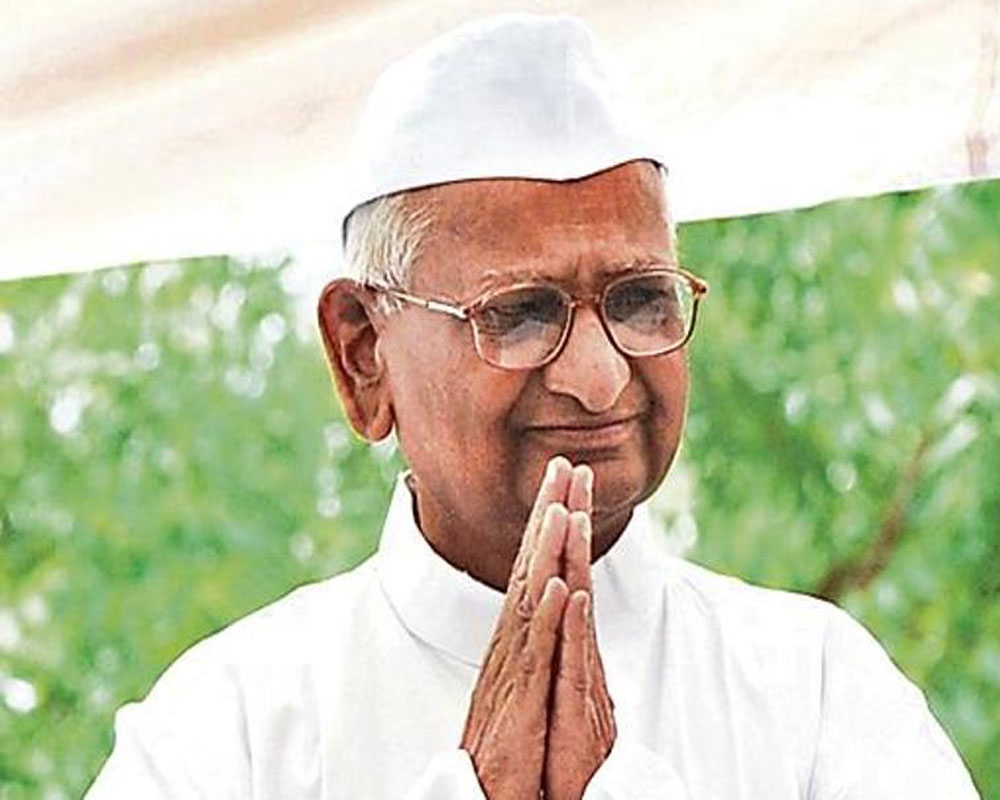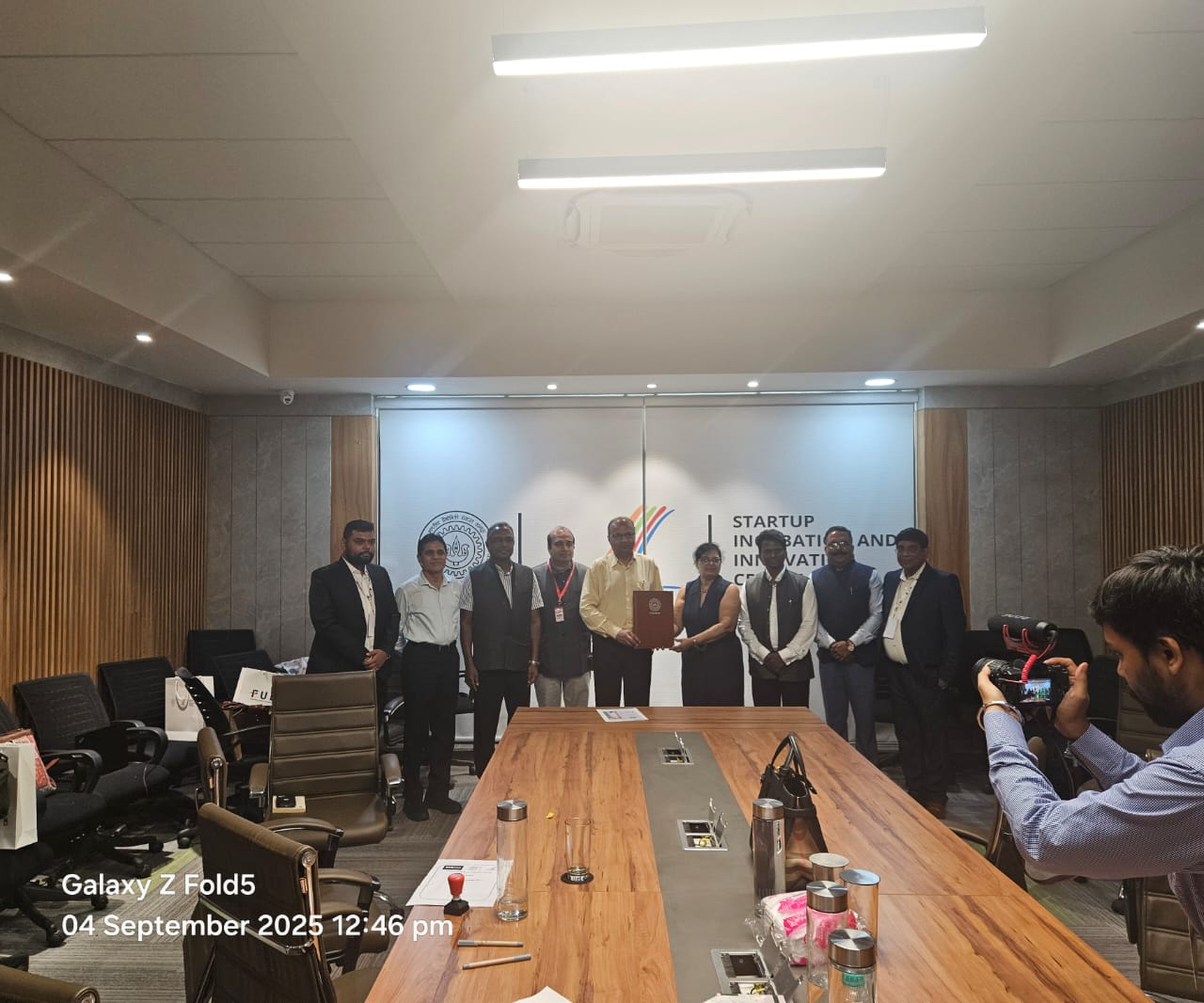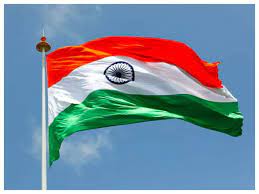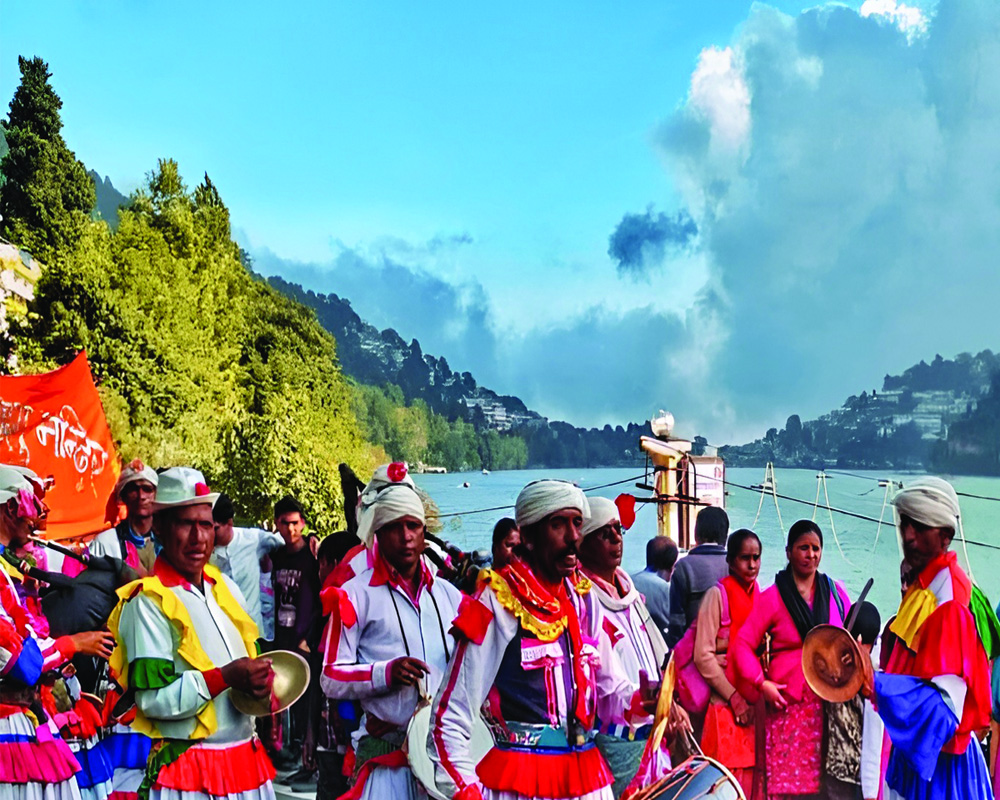If the Congress had been sincere about fighting corruption, it would not have drafted a toothless Lok Pal Bill whose provisions are laughable
The promise of bringing in an effective law to curb corruption in the top echelons of the state should undoubtedly go down as the biggest hoax played by the political class on the people of India after independence. Every Government, from the days of Jawaharlal Nehru to Mr Manmohan Singh, promised to establish an institution to bring to book corrupt Ministers and MPs and reneged on it.
But, going by the statements of Mr Manmohan Singh and Ms Sonia Gandhi after the recent settlement with Anna Hazare, there can be no doubt that the Congress and the Prime Minister have taken deception to a new level altogether.
The first acknowledgment that the cancer of corruption had begun to destroy the great gains of the freedom movement came in the 1960s when the Santhanam War of Independence from Corrupt Rule.
Is neither sincere about nor capable of working for? Does the community have the right to recall?
Santhanam Committee was appointed to assess the extent of the problem and to suggest remedial action. This was followed by the report of the first Administrative Reforms Commission which recommended the appointment of a Lok Pal to inquire into the conduct of Ministers and MPs.
The farce vis-à-vis the Lok Pal Bill began after Mrs Indira Gandhi became Prime Minister when her Government introduced it in the Lok Sabha in 1968, knowing fully well that the Bill would lapse if the Lower House was dissolved prior to its passage in Parliament. Sure enough, the Lok Pal Bill faced sudden death when Mrs Gandhi opted for early dissolution of the Lok Sabha in 1971. Since then, eight more half-hearted attempts have been made to legislate on this issue in Parliament and on a majority of these occasions, it was the Congress that was in power.
After all this humming and hawing for over four decades, the Lok Pal Bill proposed by the Manmohan Singh Government last year constitutes an affront to the intelligence of every citizen. Here, it must be made clear that this draft had the tacit approval of the Congress and the attempt to distance party president Sonia Gandhi from it is as disingenuous as the attempts by the ruling party to accuse Anna Hazare of re-sorting to "blackmail" and undemocratic means.
Instead of empowering the aam admi to complain against corrupt Ministers and MPs and arming the Lok Pal to go after the wrongdoers, the Government's draft Bill seeks to protect the corrupt in a variety of ways, while simultaneously trying to intimidate complainants.
The Government's draft says the Lok Pal will only be an advisory body without any police powers or the power to register FIRs against the corrupt. Nor will the CBI be under it. Further, the Lok Pal will have no power to initiate suo motu action or receive complaints of corruption from citizens. It will be empowered to proceed only if the Speaker of the Lok Sabha or the Chairman of the Rajya Sabha (both political appointees) permit it to do so. And, after all this, the punishment for guilty politicians who swindle the ex-chequer of thousands of crores of rupees will be a minimum of six months and a maximum of seven years in jail.
As against this bogus Bill drafted by the Government, Anna Hazare's 'Jan Lok Pal Bill' wants the Lok Pal to be an independent body like the Election Commission with suo motu power to investigate complaints against Ministers, MPs, judges and bureaucrats, to file FIRs and prosecute the corrupt, and not be just an 'advisory body'. Further, the 'Jan Lok Pal' will directly receive complaints from people and act on them.
There is another major point of difference. Mr Singh and Ms Gandhi do not want the Lok Pal to have the power to investigate the Prime Minister in regard to foreign affairs, security matters and defense-related issues. Anna Hazare's draft makes no such exception and rightly so. Bofors was a defence deal (purchase of field guns) in which Ottavio Quattrocchi, a friend of the Gandhi family, received commission payments from the Swedish company. Obviously fearing a repeat of a scandal of such proportions, the Government does not want the Lok Pal to investigate defence deals.
The Government's draft Lok Pal Bill is also so cleverly worded that everything can be classified as coming within the purview of 'security matters' and thus kept out of the Lok Pal's scrutiny. For example, if we had a Lok Pal last year on the lines proposed by the Government, the Prime Minister would in all probability have claimed that the Rs 1.76 lakh crore 2G Spectrum scam was a 'security matter' that cannot be probed by the ombudsman.
There are other areas of divergence which are equally significant. Mr Singh and Ms Gandhi prefer to go soft on the culprits (jail term of six months to seven years) whereas Anna Hazare wants the jail term to be five years to life imprisonment. Further, Anna Hazare says the loss to Government must be recovered from the accused. For example, if A Raja is held guilty, then all his properties must be confiscated. Mr Singh and Ms Gandhi do not want such a provision.
Finally, there is a clear attempt in the Government's draft Lok Pal Bill to scare away complainants by saying that those who file false complaints will be penalised and imprisoned. Anna Hazare's Bill is devoid of such intimidation.
All this is not to say that everything is fine with Anna Hazare's draft 'Jan Lok Pal Bill'. It has its flaws and hopefully these will get ironed out in the coming months. But, is it not ludicrous for Mr Singh and Ms Gandhi, who are primarily responsible for allowing Quattrocchi to walk away with the Bofors loot, to now claim that they are committed to a strong anti-corruption law? Or for Congress loudspeakers to claim that the settlement with Anna Hazare is indicative of the "sagacity and wisdom" of Ms Gandhi and Mr. Singh?
Even more laughable is the contention of the 'Amul Baby' of the family (whose great grandfather, grandmother and father fooled the people into believing that they would bring a strong anti-corruption law) that he too favours a strong anti-corruption law. If so, what was he doing all this while when his party and Government were circulating a draft Lok Pal Bill not worth the paper it was printed on?
It has been wisely said that you cannot fool all the people all the time. But this is one lesson that the Nehru-Gandhi dynasty will never learn.
IT IS OUR DEMOCRACY THAT IS TO BLAME FOR THE SORRY STATE OF INDIA
I have been witnessing the revolution at Jantar Mantar since 5 April and have listened to responses on TV debates. The Executive and the legislature are worried about losing what they consider their rights and their exclusive space. One basic premise of their responses runs as follows; We are a democracy with a constitution and nothing can be done or even attempted outside the constitutional framework. Legislative, Judiciary and Executive alone can make laws, change the constitution, adjudicate constitutional disputes until it is amended and execute laws through procedures and rules laid down by the executive. Civil Society and the citizen at large have no locus standi in decision making once they have sent their pseudo representatives to the legislature.
The following beg serious consideration.
1 Whose constitution is it? Is it of WE THE PEOPLE or is it of they the legislature?
2 Who is the sovereign? The Citizen or the MP/ MLA or the PM/ Cabinet?
Following subsidiary questions then arise:
1 Does the legislature indeed represent the majority as should be the case in a democracy? Most Win with 15 to 20 % of total votes cast.
2 Do the voting citizen have any say in selecting candidates? Does he have a real choice of selecting? Parties allot tickets through an opaque mechanism.
3 Is the elected legislator free to work in the best interest of those who he pretends to represent? Or is he subservient to Party whip or his own political interest?
4 What recourse does the voting community have to correct an errant legislator who manages to get elected on promises he is neither sincere about nor capable of working for? Does the community have the right to recall?
5 Does our democracy enable citizens to get laws they wish passed? Is referendum not their right especially when their interests are obviously at variance from those of the elected legislators? Are we not stakeholders in our own governance in a democracy 'of the people for the people and by the people'? People as in the public and as in the Civil Society. Our legislature has a vested interest in Corruption and power of patronage. Are they our patrons or are they our servants? The question reverts to who is sovereign he or we?
Anna's agitation as it is being termed is only the starting point for getting answers to these very basic questions in the public mind. It cannot stop here because the root causes of the maladies of misgovernance and corruption lie, not in the lok Pal Bill not being in position. It lies with our Electoral System, with our Party System indeed with our democracy. The politician has to find his rightful place as a servant of society who must work for the common good of the majority and for the maximum good of the nation. His own survival (Not his best political interest) must be co-terminus with the best interest of the people of India.
To that end this movement must aim at rectification of our democratic system. The constitution is sacrosanct only so far as it serves the interest of the people who have adopted it for themselves. Despair and frustration have reached the stage where People don't give a damn for being called a Democracy. They would rather exchange it with good governance with or without the false glory of being called the largest democracy in the world. Long Live Veteran Anna Hazare Long Live Veteran Solidarity with Anna. Veterans Will go all the way in supporting the Second War of Independence from Corrupt Rule.








 OpinionExpress.In
OpinionExpress.In















Comments (0)